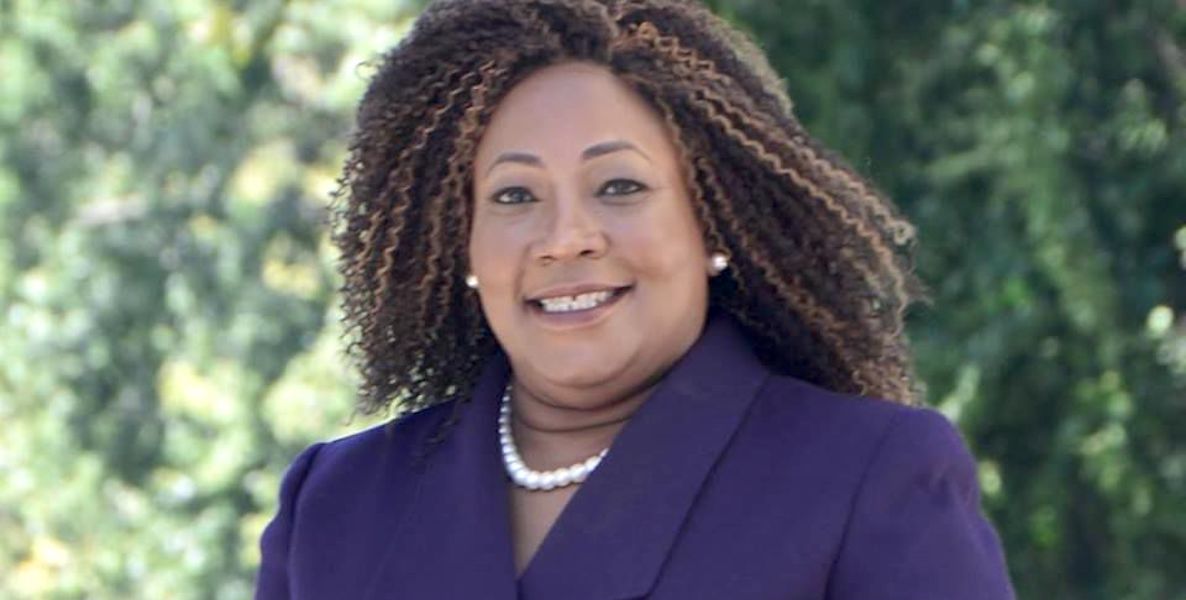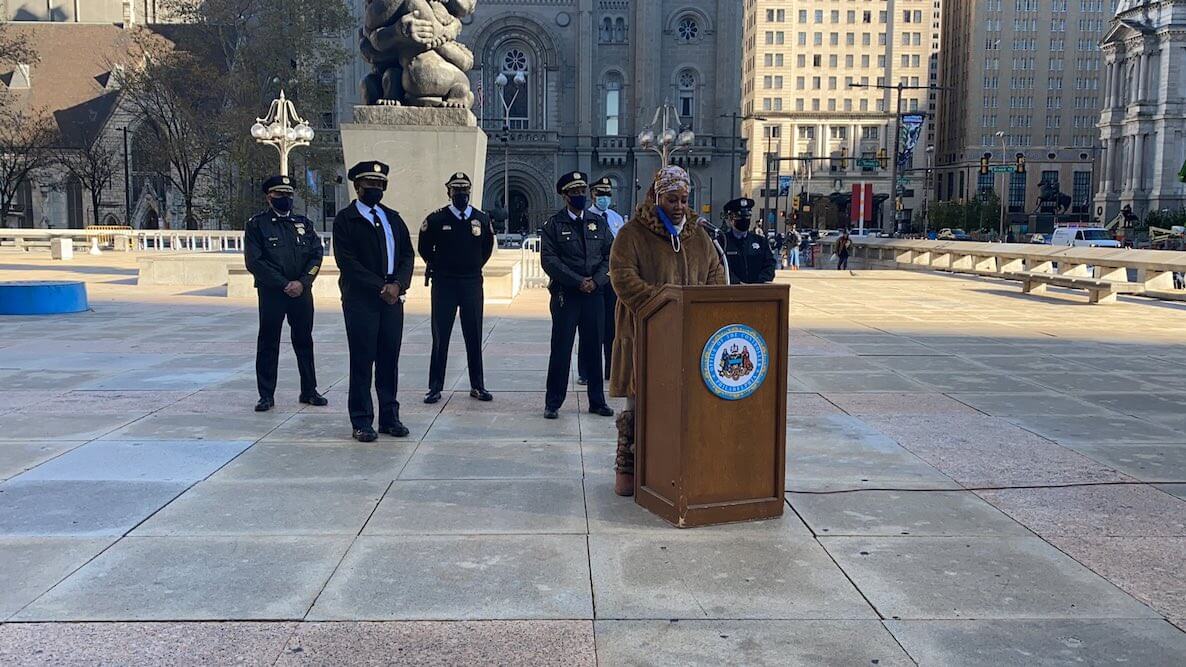Philadelphia Sheriff Rochelle Bilal found her office on the hot seat at a recent City Council hearing held on her decision to restart sheriff’s sales in the midst of the pandemic and move the process online. Historically, a bidder had to be physically present at the sale in order to purchase a property. Recently, the sheriff’s office announced a contract with a company “Bid4Assets” that would move sales online and allow purchasers to bid remotely.
Depending on who you ask, the decision to move the sheriff’s sales to a digital platform is just a long overdue modernization of an obsolete bureaucratic process. But other people point to the Sheriff’s Office’s scandal-ridden history as a reason why Council is right to be concerned about this no-bid contract. After a grueling six-hour City Council public hearing, the Sheriff’s Office agreed to seek approval for an additional sixty (60) day sale moratorium from the First Judicial District, which was subsequently granted. However, this action was not enough to stave off renewed calls for the elimination of this row office and the consolidation of its duties into other existing agencies.
MORE ON THE SHERIFF’S OFFICE IN PHILADELPHIA
The idea of amending the City Charter to put an end to the indictment magnet that has been the sheriff’s office has its merits and its cheerleaders, but does it have the necessary political support to actually happen? Probably not.
But is there an achievable compromise somewhere between abolishment and business as usual? Now might be the time to try it.
Something in the Water?
More so than any other elected office, the Sheriff’s Office seems to regularly be the subject of corruption investigations or employee lawsuits. The sheriff position itself is a holdover from colonial England, with a modern portfolio that includes: 1) providing courtroom security, 2) transporting prisoners and 3) conducting sheriff’s sales on foreclosed or tax delinquent properties.
Philadelphia has had four sheriffs since 1988, each with a “pull up a chair” story to tell about their tenures.
Sheriff John Green, the longest serving sheriff in Philadelphia history (1988-2010) was sentenced to five years in prison after pleading guilty to receiving more than $675,000 in bribes “in exchange for giving $35 million in no-bid work to a businessman who became the office’s biggest vendor.”
Sheriff Green was then replaced by longtime aide Barbara Deeley, who served as one of the government’s star witnesses against him with a grant of immunity from prosecution. Sheriff Deeley served briefly until 2011, when the vacant seat was won by former State Representative Jewell Williams. Sheriff Williams was accused by a number of employees of sexual harassment, intimidation and retaliation, with at least six separate lawsuits filed by former employees since 2017.
Let’s make integrity our bedrock principle and enshrine the Office of the Inspector General permanently in our Charter. The best time to do it was 10 years ago; the second next best time is now.
Voters ousted the scandal ridden Sheriff Williams and swept in current Sheriff Rochelle Bilal who campaigned on reforming the Sheriff’s Office and “helping families stay in their homes.” This reform agenda appealed deeply to voters tired of the seemingly weekly scandals and allegations of mismanagement to emerge from the Sheriff’s Office.
However, two years into her term, like her predecessor, Sheriff Bilal has found herself on the receiving end of three whistleblower lawsuits brought by former senior staffers “who say they lost their jobs in 2020 after exposing serious wrongdoing—including alleged financial impropriety and sexual harassment.”
No-Bid, Bid4Asset Contract
The most recent news story featuring the Sheriff’s office involves an no-bid contract to a company called Bid4Assets (Ironic, right?). Council Majority Leader Cherelle Parker and City Council caught wind of the plan to restart and move sheriff’s sales online and immediately introduced a resolution authorizing hearings on the decision. In an op-ed she authored following the marathon public hearing, the Councilperson lays out her concerns for the virtual switch:
During the hearing, it became clear that online auctions may have a substantially negative effect on the Philadelphia housing market by opening our city to bulk buyers and speculators anywhere in the world (speculators who are notorious for not paying property taxes), allowing them to purchase properties without ever stepping foot within city limits.
It also became clear that Bid4Assets, the company tasked with managing these sales, will be collecting up to a 10% premium on all sales in Philadelphia, while the rate in neighboring Bucks County is only 1.5%—a contract so lucrative for Bid4Assets that WHYY called it a “windfall for the private company.”
Making an already problematic contract even more problematic was the fact that the Law Department never signed off on the contract, an apparent violation of the Home Rule Charter.
Now, the City is left scrambling to figure out next steps. As reported by WHYY:
What should happen next isn’t totally clear, according to sources involved in city discussions. Invalid contracts would need to be amended or possibly voided and reissued, but more complicated is the status of hundreds properties sold at auction under the terms of a voided contract.
Where do we go from here?
In light of the recent controversy, a number of groups have renewed calls to eliminate the row office and fold its functions into other departments. There is precedent for such action. In 2010, Mayor Michael Nutter signed legislation passed by City Council and approved by voters that abolished the Clerk of Quarter Sessions “which was responsible for maintaining court records, staffing courtrooms, and collecting bail money and fines in criminal cases.” In fact, the Charter is littered with abolished elected positions, including the Coroner and Recorder of Deeds.
The City’s Inspector General is charged with rooting out fraud and corruption from City ranks. It is an office that has paid for itself multiple times over, saving taxpayers an estimated $90+ million dollars over the last decade and resulting in the arrest or indictment of almost 100 city employees on corruption, fraud or theft charges.
What made the abolishment of the Clerk of Quarter Sessions politically possible was a scathing audit regarding the mismanagement of funds, coupled with the approaching retirement of a long-serving official, for an office that most people had never heard of. In other words, the planets were aligned. Barring a major public outcry, it is a scenario unlikely to play out again with this row office at this time. Procurement just isn’t sexy.
However, the solution to ensuring an efficient and ethically run Sheriff’s Office doesn’t require abolishing it. Rather than amend the Charter to eliminate an office, an alternative solution would be adding an office to its rank—that of the Inspector General.
Inspector general
The City’s Inspector General is charged with rooting out fraud and corruption from City ranks. It is an office that has paid for itself multiple times over, saving taxpayers an estimated $90+ million dollars over the last decade and resulting in the arrest or indictment of almost 100 city employees on corruption, fraud or theft charges.
Unfortunately, the Office of the Inspector General (OIG) exists only at the pleasure of the mayor. The office was created through a Mayoral Executive Order and can go away with the stroke of a pen. This also means that the Inspector General only has jurisdiction over the departments and agencies that fall under the Executive Branch. The sheriff, as well as all other independently-elected offices, are not subject to the investigatory jurisdiction of the OIG.
Past calls have been made to make the OIG permanent and expand its jurisdiction to cover all government agencies. But without the political will, there hasn’t been a way.
The calls for Sheriff’s Office reform aren’t just about improving the city bureaucracy of more efficiently shuffling papers from one pile to another. It’s about ensuring that the people who are unfortunate enough to find their names on the sheriff’s list aren’t preyed upon by outside speculators eager to turn a quick buck. It’s about ensuring that those people get every single cent that is coming to them from their sale, rather than unnecessarily enriching an out of state company at their expense. It’s about making sure that people have protections from a system when they are at their most financially and emotionally vulnerable. It’s about keeping people in their homes when possible and otherwise ensuring a fair and thoughtful system of collections when not.
With that, I’ll leave you with the words of former Inspector General Amy Kurland, a woman I worked alongside while in the Nutter Administration and someone who I deeply admire:
But integrity is not like picking up trash or filling a pothole. It is more elusive and has to influence everything we do. We must be vigilant every day and continue to reinforce the message that integrity is our bedrock principle. We must constantly remind ourselves and our colleagues that working in public service isn’t merely about earning our paychecks; because we work for the public, we also must earn the public’s trust by doing our jobs the right way—openly and honestly.
Let’s make integrity our bedrock principle and enshrine the Office of the Inspector General permanently in our Charter. The best time to do it was 10 years ago; the second next best time is now.
Lauren Vidas is an election law attorney and government relations professional in Philadelphia where she has spent over a decade working in and around city government. Follow her on Twitter or sign-up for her newsletter to stay on top of the workings of City Hall.
Make sure you’re all set to vote in the 2021 primary election in Philly
- Our voter guide lays out everyone who’s running for office and more
- Here you can learn about all the judges who will be on Philly ballots
- Have questions about voting? Find answers in our PA voting FAQ.
- Make sure you’re registered, apply for a mail-in ballot and more








